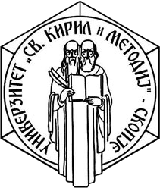- Did you mean
- application
Резултати од пребарување

We are looking for a new colleague at Writerity, for the Intermediate Web Developer job opening.
If you are interested please don't hesitate to send us your resume at: career@writerity.com
JOB DESCRIPTION
Enterprise web application development, maintenance and operation mainly using Vue.js, Laravel and WordPress.
JOB QUALIFICATIONS
Required Skills:
・ 3+ years of experience in the field of web programming
・ Development experience using Git
・ Experience with PHP, HTML5, CSS3, JavaScript, Vue.js,
Docker
・ MVC framework experience including Laravel and
WordPress
・ Excellent communication skills
・ Comfortable with knowledge sharing and open to
provide/receive feedback
・ Self-starter and proactive person, who’s not afraid to take
initiative
Preferred Skills:
・ Experience in System Development
・ Experience in development team management
・ Code review experience
・ Experience in using of CI and CD tools
・ Development and operation experience of infrastructure
and network domain
Nice to have:
・Knowledge in Linux (Docker-Nginx, PHP-FPM, MariaDB, Redis, Laravel Echo Server)
・AWS Elastic Beanstalk Multi-Docker, RDS, S3, ElastiCache, Route 53
・GitHub, CircleCI, Mackerel, Terraform, Slack
Benefits:
• An opportunity to attend training workshops in Japan
• Team building activities and company events
• Possibility to work together with teams from other countries
• Supportive, friendly and healthy work environment in an international company
Мастер 2023
Нови студиски програми од Втор циклус на ФИНКИ од 2023
Табови
д-р Александар Стојменски
Табови
Академик д-р Љупчо Коцарев
Табови
д-р Андреа Кулаков
We are excited to announce the launching of an internship program for aspiring frontend and backend developers at Metergram, from April 1st to June 30th 2022.
We are looking for current Computer Science or Computer Engineering students to join our software development internship. If you are a current student and are interested in building software using state-of-the-art technologies (AWS, Serverless, Node.js, React, Redux, etc) then this exciting opportunity is for you.
You’ll fit right in if you…
- Got good vibes
- Like working with nice people
- Never get tired of learning
- Love a good challenge
- Are passionate about programming
Preferred Qualifications
- Demonstrated ability to do analytical problem solving
- Good understanding of the general concepts of object-oriented and functional programming
- Good understanding of relational databases and operating systems
- Understanding of all the phases of the software development cycle (SDLC)
- Preferably near the end of the studies (3rd or 4th year)
- Bonus skills: JavaScript, TypeScript, SQL, REST APIs
You will learn about…
- How to apply the best practices in Web development
- Building modular, loosely coupled Web applications and services
- The most important design patterns and principles for building modern Web services
- Working with modern technologies like Node.js, React, Serverless framework, etc.
- Amazon Web Services, when and how to use them
- Source control (Git)
- How to work in a team and communicate on a daily basis
- The Scrum and Agile methodology
You will work on…
- Specific tasks provided by your mentor who will guide you through the whole process
- Writing integration and unit tests using Mocha and Chai framework
- Real-world applications using modern Web technologies with an emphasis on Node.js, React and AWS
You can expect…
- To become part of a fast-growing company and an amazing team of professionals
- To experience a company culture that respects diversity, individuality and equality
- To participate in various projects learning to work on state-of-the-art technologies
- To gain knowledge, guidance and mentorship from experienced developers and excellent IT professionals
- To be guided and mentored through the process
- To learn about effective communication and collaboration with team members and clients
You will get…
- 400 EUR gross per month
- Flexible work hours during the week, weekends off
- Possibility to work remotely, hybrid or in an office, it is completely up to you
- Great office location in the city center and a comfortable work environment
- Excellent employment opportunity after the end of the program
We are looking forward to receiving your CVs at jobs@metergram.com

We are excited to announce the launching of our 2nd internship program for aspiring backend developers at Metergram, from June 1st to August 31st 2023.
Our rewarding and challenging internship program offers two tracks:
- one focused on .NET and Azure
- the other one focused on Node.js (JavaScript,TypeScript) and AWS
We welcome highly motivated .NET / Node.js interns who will work closely with our experienced developers and gain hands-on experience in developing applications using top-notch technologies using the C# and JavaScript/TypeScript programming languages.
You’ll fit right in if you…
- Got good vibes
- Like working with nice people
- Never get tired of learning
- Love a good challenge
- Are passionate about programming
Preferred Qualifications
- Good understanding of the general concepts of object-oriented and functional programming
- Good understanding of relational databases and operating systems
- Demonstrated ability to do analytical problem solving, showing knowledge of the most popular data structures and algorithms
- Understanding of all the phases of the software development cycle (SDLC)
- Preferably near the end of the studies ( 4th year)
- Bonus skills:
- JavaScript, TypeScript, SQL, REST APIs, AWS
- C#, .NET, SQL, REST APIs, Azure
You will learn about…
- How to apply the best practices in software development
- Building modular, loosely coupled Web applications and services
- The most important design patterns and principles for building modern Web services
- Working with modern technologies like C#, .NET Core, Node.js, Express.js, Javascript, Typescript, Serverless framework, Terraform
- Asynchronous programming
- Amazon Web Services (AWS Lambda, AWS DynamoDB, AWS RDS, AWS API Gateway, AWS Secrets Manager)
- Azure (Azure App Service; Azure Sql Database, Azure Application Insights, Azure Key vault)
- Continuous integration and delivery using CI/CD pipelines
- Debugging and testing
- Source control (Git)
- How to work in a team and communicate on a daily basis using the Scrum and Agile methodology
You will work on…
- Specific tasks provided by your mentor who will guide you through the whole process
- Writing integration and unit tests using xUnit or Jest
- Real-world applications using modern Web technologies with an emphasis on Node.js/C# with AWS/Azure
You can expect…
- To become part of a fast-growing company and an amazing team of professionals
- To experience a company culture that respects diversity, individuality and equality
- To participate in various projects learning to work on state-of-the-art technologies
- To gain knowledge, guidance and mentorship from experienced developers and excellent IT professionals
- To be guided and mentored through the process
- To learn about effective communication and collaboration with team members and clients
You will get…
- 400 EUR gross per month
- Flexible work hours during the week, weekends off
- Possibility to work remotely, hybrid or in an office
- Great office location in the city center and a comfortable work environment
- Excellent possibility for employment after the end of the program
We are looking forward to receiving your CVs at jobs@metergram.com
Coding and Cryptography (3+1+1)
Coding and Cryptography (3+1+1)
- Offered by: Ss. Cyril and Methodius University - Skopje, Faculty of Computer Science and Engineering – FCSE
- Study programme: Coding and Cryptography master studies
- Scientific-research field: Natural Science and Mathematics
- Category: Computer Science
- Sub-category: Computer security, Cryptography and Coding Theory
- The master studies cycle consists of 60 ECTS.
- Study duration: 2 semesters
- One academic year is divided into two semesters with 30 weeks each (1 semester = 15 weeks)
- The first semester is comprised of courses only, while in the second semester there are fewer courses and the rest of the time is devoted to the final project, i.e. master thesis.
- Enrollment requisites: fully completed undergraduate study cycle with a minimum of 240 ECTS with a degree in the fields of computer science and/or computer engineering. In the case of having an appropriate degree with less than 240 ECTS, the student has to enroll the introductory courses first.
- Introductory courses: only for students that have obtained less than 240 ECTS. A number of differential introductory courses are offered in order to level up the required competences. Upon successful completion of the introductory courses, the student has the right to continue with the formal master study programme courses in the second year of studies.
- First semester: 3 compulsory courses + 2 elective courses (one of the elective courses can be chosen from the courses list offered by the University)
- Second semester: 1 compulsory course + 1 elective course (can be chosen from the courses list offered by the University only in the event that this opportunity has not been used in the previous semester) + final master thesis project that equals 18 ECTS.
- 1 ECTS = 30 hours of work load.
- Contact hours per week is 4.
|
Course |
Semester |
ECTS |
Prerequisite |
|
| 1 |
Probability and statistics |
VII |
6 | Calculus 2 |
| 2 | Algorithms | VII | 6 | Object oriented and visual programming |
| 3 | Elective course 1 | VII | 6 | |
| 4 | Elective course 2 | VII | 6 | |
| 5 | Elective course from University list of available courses | VII | 6 | |
| 6 |
Discreet structures 3 |
VIII |
6 |
Discreet structures 1 |
| 7 |
Security and cryptography |
VIII |
6 |
Discreet structures 3 |
| 8 |
Wireless networks |
VIII |
6 |
Data and computer communications |
| 9 | Theory of information | VIII | 6 | Probability and statistics or Statistics |
| 10 | Elective course 3 | VIII | 6 |
|
Course |
Semester |
ECTS |
Prerequisite |
|
| 1 |
Computer networks design |
VII |
6 | Data and computer communications |
| 2 | Databases 2 | VII | 6 | Databases |
| 3 |
Advanced computer systems |
VII |
6 |
Microprocessors and microcontrollers |
| 4 |
Calculus 3 |
VII |
6 |
Calculus 2 |
| 5 |
Parallel and distributive processing |
VIII |
6 |
Operating systems |
| 6 | Network and distributed operating systems | VIII | 6 | Data structures and Operating systems |

